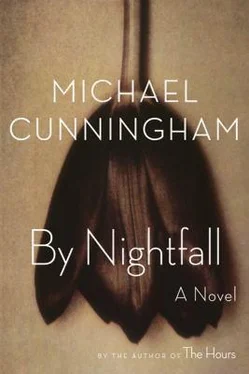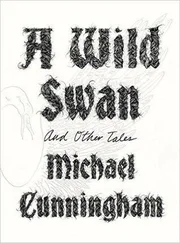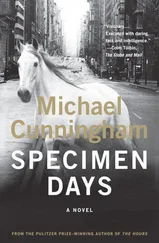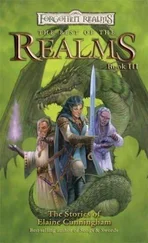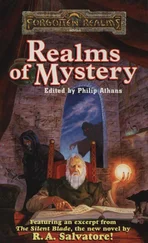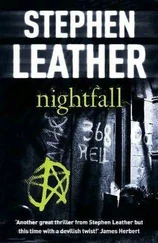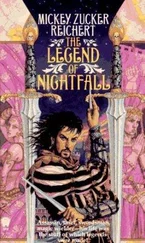No. It’s the last thing I want.
“Sure,” he says. “If you want to.”
“You sure?”
“I’m sure.”
She says, “Lately I’ve been thinking a lot about Our Town.”
“Your senior play.”
She’d played the mother. Not Emily. Banish that thought.
Bea in high school—a solid and ironic girl with two close girlfriends (now at Brown and Berkeley), no visible boys, a young life not devoid of pleasure but not in any way voluptuous, not even a little bit reckless. Long, earnest talks with the friends, then homework and bed. She and the friends (their names were Sarah and Elliott, solid and ironic as well, Peter liked them, will he ever see them again?) went to movies on the weekends, shopped sometimes for the heavy sweaters and lace-up boots to which they were devoted. They went skating once, at Wollman Rink, but never again.
“You seemed so unconcerned about it,” she says.
“No. I thought you were great.”
“You didn’t tell me that. You were talking on your phone the whole time. Some sort of deal you had to make.”
Didn’t he? Was he? No. She’s inventing this. He did tell her she was great, he used that exact word, and he wasn’t talking on his phone after the play, what kind of man would do that?
She says, “I know it’s sort of pathetic, but I’ve been thinking about it lately.”
“I don’t remember it that way.”
“I do. I remember it perfectly.”
This is a false memory , Bea. Do you believe, do you actually believe, that I’d go backstage after my daughter’s senior play and talk to some client on my cell phone?
“Wow” is the best he can do. “Hey, if I didn’t say the right thing, I’m sorry. I did think you were great.”
“I wasn’t. That’s the thing. I couldn’t act, and we both knew it.”
“No, no,” Peter says. “I think you can do anything.”
“You don’t have to lie to me, Daddy. I don’t need you to.”
It is true? Of course she can’t do anything, no one can do anything, and yeah, of course, you see your child’s limitations, you’ve had parent-teacher conferences about her limitations, fatherhood doesn’t render you blind, but you love her, you truly do, and you encourage her, you tell her (I did, I swear I did) that she was great as the mother in Our Town.
She saw through it, didn’t she? She was smarter than she let on.
How do you tell her that her quote unquote limitations don’t matter to you?
He says, “I love you. I love whatever you do.”
She answers, “I think you did your very best to love me. I think you had limitations of your own.”
Fuck.
Is that why you’re so maidenly, is that why your bed remains narrow? Is that why you seem to want so little?
Chinatown dissipates, and is replaced by the brooding brown bulk of Tribeca, the solemn quiet of its streets.
Unlike Chinatown, Tribeca’s nocturnal quiet doesn’t feel anticipatory. If, for a few hours every day, it’s possible to get a haircut or buy a lamp or have a three-hundred-dollar dinner, that doesn’t appear to matter much, not to the broad light-bleached streets or the brown-and-gray rectitude of the buildings, which have been cutting exactly these shapes out of the New York sky since before your grandfather was born.
He says, “I’m sure I did. I’m sure I do.”
He is taken by a strange, almost luxuriant desire for her to scream at him, to let him have it, nail him and abuse him, accuse him of every known crime, so he doesn’t have to keep responding, doesn’t have to struggle for the next thing to say.
She’s not going to do it, though, is she? She is, has always been, sullen and inward, prone as a child to singing soft, angry little songs she’d made up.
She does say this. “I hate being the wounded daughter who needed more attention. That’s not who I want to be.”
“How can I help you now?” he asks. “What can I do?”
Please, Bea, either forgive me or excoriate me. I can’t have this conversation much longer.
You have to have this conversation, though. For as long as she asks you to.
She says, “You can see awfully well, but I’m not sure how well you can hear.”
She’s been saving that one up, hasn’t she?
Now he’s in the Financial District, the World of Buildings, no way of knowing—except for the actual Stock Exchange—what goes on in any of them except, of course, that it’s all Something to Do with Finance, it’s like Mizzy wanting to do Something in the Arts; it’s the effect these citadels have, whether they be the New Museum or this titanic, vaguely seventies monolith he’s passing now, that purposeful inscrutability, those fortresslike heights—what wouldn’t lead the young and lost to stand at their bases and think, I’d like to do Something in There?
Mizzy has sat with the sacred stones. Now he wants to be part of something that recognizes him.
“I’m listening now,” he says. “I’m right here. Keep talking to me.”
Bea says, “I’m all right, Daddy. I’m not some kind of basket case. I have a job and a place to live.”
Hasn’t she always insisted, even as a little girl, that she was all right? Hasn’t she always gone uncomplainingly to school and had her two or three friends and lived as privately as she could behind the leaky walls of her room?
Weren’t he and Rebecca relieved that she seemed to require so little?
He says, “That’s something, isn’t it?”
“Yes. It’s something.”
A silence follows.
Jesus, Bea. Just how guilty do you need me to be?
And now, finally, Peter reaches Battery Park. There to the left is the arctic glow of the Staten Island Ferry, up ahead are the tall black-granite pillars that bear the names of the war dead. He walks down the broad aisle formed by the memorials. Moby-Dick opens in Battery Park, first it’s “Call me Ishmael” and then—impossible to remember it beyond the vaguest paraphrase—there’s a riff about this mole assaulted by waves, that’s not it, but he does remember that the land is called a mole. There it is, up ahead, the black roil of the harbor, netted with light, he can smell it suddenly, and sure, it’s urban sea-smell, brine mingled with oil, but exciting nevertheless, that eternal, maternal wildness though compromised by all the crap that’s dumped into this particular seawater, seawater it remains, and this finger of land, this mole, is the city’s only point of contact with something bigger and more potent than itself.
“I suppose you know what’s best for you,” he says. Can she hear the impatience in his voice?
Peter stands at the railing. There it all is: Ellis Island and Miss Liberty herself, that verdigris apparition, so fraught with meaning that she’s transcended meaning. You love (if you love anything about her) her greenness and her constancy, the fact that she’s still here even though you haven’t seen her in years. Peter stands with the dark glitter-specked water rumbling in in humps—no waves, just rolls of water that break against the seawall with a deep phloom sound and send up modest tiaras of spray.
Bea doesn’t answer. Is she crying? If she is, he can’t hear it.
He says, “Why don’t you come home for a while, baby?”
“I am home.”
He stands at the railing, with the black ocean hurling itself at his feet and the little Christmas lights of Staten Island strung along the horizon as if they’d been placed there to delineate the boundary between dark opaque ocean and dark starless sky.
“I love you,” he says helplessly. He hasn’t got anything more helpful.
“Good night, Daddy.”
She clicks off.
AN OBJECT OF INCALCULABLE WORTH
Читать дальше
Конец ознакомительного отрывка
Купить книгу
